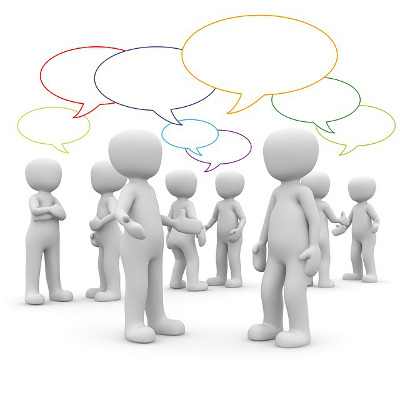Let’s move on to the informational then, perhaps starting with the most obvious and visceral concern, the dead.
They have discovered in neuroscience that parts of our brain learn to recognize, mimic and predict the behaviour of those close to us, those we know well. This usually has no mind bending impact until the known person dies. Then with the removal of that persons presence and influence, we begin to experience what amounts to phantom limb pain. Our brain keeps animating that construct that stood for them in our minds. This continues to have an impact on our nervous system and biology as well as our behaviour.
And our dreams might try to compensate for that loss of “limb.”
Even to the point we’ll ‘see’ the person in a crowd.
We even create proxies for the lost member of our in-group, friend, family or what have you.
Ghosts? Yes.
There is a school of thought, called terror management theory, that advances the opinion that our entire society, our every ritual, moral, and social institution is based on dealing with this most primal sense of loss. I would like to offer an alternative.
We don’t experience everyone’s passing as a sense of loss, but without exception we feel we have to process a changing social environment. I offer that what has that profound influence on everything we know, is not terror. It might seem like terror in our blindness to our own consciousness, but it is instead memory management, digesting and assimilating constructs in our collective memory, and this process of processing that shared information creates not a system of fixed elements, persistent facets of human nature that for some reason just won’t change, but instead a living and much more dynamic system.
We haven’t adopted or artificially created a system to help us deal with some mysterious existential angst. We are simply navigating something that has always existed for us despite our modern ignorance and nihilism.
So, a seance might have some actual truth to it in terms of brain function? Indeed, it does. This is why experiments to make up a haunting can actually work. That and the willingness of meta-consciousnesses to participate, incarnate in a sense.
So the meta-consciousness is self aware? It is, yes. In my experience there is no basis for a belief in monopsychism as popular as it’s proven to be. If the psychic space we share were smoother and more orderly, then monopsychism might make more sense, but it’s disparate, seemingly incoherent.
Monopsychism? The basis of the unity philosophy. It is present in many well established religions. The idea that we are all actually parts of a singular mind and soul, and that it’s just a matter of realizing that before we can recover god’s peace of mind. Divine sanity. Basically, our seemingly individual souls are supposedly just personalities in the consciousness of a being who is suffering a raging case of multiple personality disorder. This notion is actually wide spread and devoutly believed in.
So the collective soul is lumpy? The collective soul is non-existent, perhaps postulated to explain the shared medium that all of our beings exist in.
Your thoughts are welcome. Be well friends.
Travis Saunders
Dragon Intuitive
~science,mysticism,spirituality~

